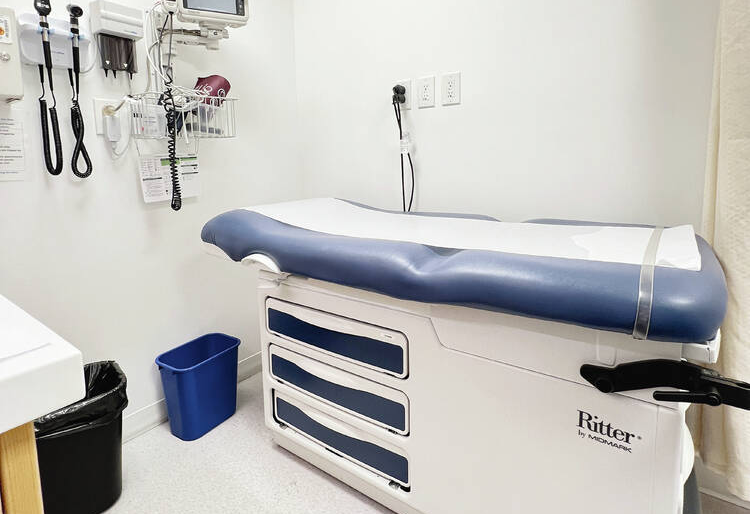I arrived at Vancouver General Hospital’s emergency department on a Thursday morning. Not as a patient, but as a journalist trying to understand what makes our health care system – for all its flaws – remarkably resistant to the kind of systemic fraud that plagues other countries.
“It’s not that fraud doesn’t exist here,” Dr. Maya Selvan told me as we walked past the triage desk. “But the structure itself makes large-scale schemes difficult to execute.” A physician with 15 years in both Canadian and American health systems, Selvan has witnessed firsthand how different funding models create different vulnerabilities.
Unlike the U.S. system where billions are lost annually to elaborate billing schemes, Canadian health care fraud tends to be smaller in scale. Statistics Canada data suggests health care fraud costs our system between $1-2 billion annually – significant, but a fraction of what comparable systems face.
The reason lies in a structural difference that most Canadians take for granted.
“When you remove the profit motive from the basic delivery of care,” explains Danielle Martin, family physician and health policy expert at Women’s College Hospital in Toronto, “you eliminate many of the incentives that drive fraud in other systems.”
I spent three months investigating how Canada’s single-payer structure creates natural fraud prevention. What I found was both encouraging and cautionary.
In Whitehorse last month, I met Jennifer Klugie, who coordinates billing for a network of northern clinics. Her office – a converted examination room with filing cabinets and a computer that looks a decade old – is where claims to the territorial health insurance plan are processed.
“The forms are straightforward,” Klugie said, pulling up a standard billing template. “There’s simply less room for creative accounting when everyone uses the same codes and the same payer reviews everything.”
This standardization creates what fraud investigators call “pattern recognition opportunities.” When everyone bills through the same channel, outliers become visible.
The Canada Health Act itself serves as a structural deterrent. By establishing public administration of essential services, it removes the complex web of intermediaries that often facilitate fraud elsewhere. Provincial health ministries directly oversee funding, creating fewer hands through which money passes – and fewer opportunities for diversion.
“It’s like the difference between a garden hose and a sprinkler system,” Michael Decter, former Deputy Minister of Health for Ontario, told me over coffee in Toronto. “The more places water can escape, the harder it is to account for every drop.”
That’s not to say our system is impenetrable. The most common forms of fraud in Canadian health care include:
Double-billing, where providers charge both the provincial plan and patients directly for insured services. The College of Physicians and Surgeons of British Columbia disciplines several doctors annually for this practice.
Phantom billing – charging for services never performed. A 2022 audit by the Ontario Ministry of Health identified approximately $10.4 million in questionable billings from practitioners who claimed physically impossible hours or procedures.
Prescription drug schemes involving medications diverted to street markets. Health Canada estimates this costs the system around $500 million annually.
At Providence Health Centre in Vancouver’s Downtown Eastside, I watched Sara McKnight, a nurse practitioner, review medication lists with patients. The process seemed tedious – checking names, dates, and quantities – but represents one of many small verification points built into the system.
“We’re not explicitly looking for fraud,” McKnight explained, “but these verification steps make it harder for medications to disappear or be over-prescribed.”
The system’s centralization also enables sophisticated data analytics. Alberta Health Services implemented an AI-based claims review system in 2020 that has already identified unusual billing patterns from 28 providers, leading to deeper investigations.
What makes Canadian health care somewhat unique is that our biggest financial vulnerabilities often come not from organized crime, but from systemic inefficiencies and administrative waste.
“The irony is that we’re good at preventing outright fraud,” notes Ivy Bourgeault, professor of health policy at University of Ottawa, “but we lose far more money to poor coordination, duplication of services, and outdated administration processes.”
Indeed, a 2021 C.D. Howe Institute report estimated that administrative inefficiencies cost Canadian health care approximately $5.4 billion annually – nearly three times what we lose to fraud.
On a rainy afternoon in Victoria, I visited the office of Colin Fyfe, a former RCMP financial crimes investigator who now works with the BC Ministry of Health. His desk was stacked with case files – not the work of sophisticated crime rings, but largely investigations into individual practitioners.
“Our advantage is centralization,” Fyfe said. “When one entity pays for most services, it’s easier to spot the abnormal. The challenge is having enough investigators to follow up.”
Provinces vary widely in their investment in fraud prevention. Quebec’s RAMQ (Régie de l’assurance maladie du Québec) has one of the most robust investigation units, with over 60 dedicated staff. By contrast, some smaller provinces have just a handful of investigators.
Health Canada estimates that every dollar invested in fraud prevention returns between $7-$14 in recovered funds and prevented losses – a remarkable return on investment that suggests we should be doing more.
While our single-payer structure provides natural protection, emerging technologies and evolving care models present new challenges. Telehealth services, which expanded dramatically during the pandemic, have created verification challenges. How do you confirm a virtual visit actually occurred?
The Ontario Ministry of Health launched a targeted audit of virtual care billings in late 2022, finding concerning patterns among some high-volume providers. One physician had billed for over 400 virtual consultations in a single day – physically impossible if providing legitimate care.
As we consider reforms to strengthen Canadian health care, maintaining robust fraud prevention shouldn’t be overlooked. The structural advantages of our system – centralized payment, standardized coding, and comprehensive oversight – represent strengths worth preserving even as we address wait times and access challenges.
When I asked Dr. Selvan what keeps her in Canada despite opportunities to earn more elsewhere, her answer was revealing.
“In the Canadian system, I just focus on patient care,” she said. “I don’t need teams of billing specialists or worry about which insurer covers what procedure. That simplicity doesn’t just reduce fraud – it lets me be a better doctor.”
Perhaps that’s the greatest strength of our approach: a system designed around care rather than profit naturally creates fewer incentives and opportunities for exploitation. As we debate health care’s future, that’s worth remembering.






